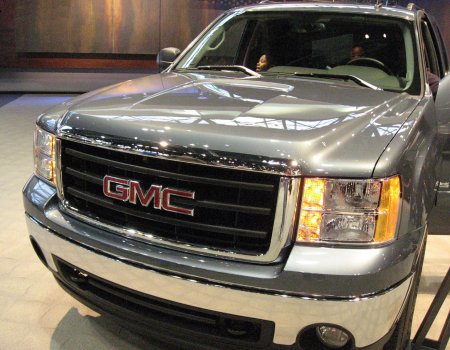Naming a fictional character can be a tricky business. The right name can make a character greater, and the wrong name can derail all your carefully drawn details. The importance of a name on people's perception of a character or even a real person has long been understood. In literature the Bronte sisters were originally given male pseudonyms in order to render them more serious and palatable to their potential readership. The author George Sand was born Amanda Aurore Lucille Dupin. Later on Hollywood was following a similar practice. Only in their case they weren't hiding gender but often accentuating it with what were either considered lovely memorable feminine names or manly names befitting a man of action. Who doesn't now know that Cary Grant started life out as Archibald Leach? They did hide, however, ethnicity in many cases. Theda Bara was actually Theodosia Burr Goodman, a good Jewish girl from Ohio.
Historically a name can make or break whether or not someone is remembered. In Allen Barra's examination of the fame and notoriety of Wyatt Earp, Inventing Wyatt Earp, he devotes a section of the book to speculating on why it is Wyatt Earp more than his brother Virgil Earp that is remembered as the upright lawman with the Buntline Special Colt .45. He quite congenitally points out that, besides a few other details of Wyatt's fame, 'Wyatt Earp' just rolls off the tongue better than 'Virgil Earp' does. Keeping to the western theme 'Doc Holliday' is a magical moniker that gives the owner a permanent password to fame. In the town of Tombstone at the very same time lived a medical doctor who was known as Doc Goodfellow, and while the name appears to be nearly as good, and then good doctor was, in fact, a brilliant physician and innovator, it is the gunfighting tubercular dentist who's name really sings in the memory.
In fiction, as in fact, it is a great boost to memorability to have a great name. Arnold Schwarzenegger wrote in his early memoir Pumping Iron of his intention to keep his funny sounding Austrian name that was hard to spell, despite Hollywood practice, because he believed that it's very unusualness would ensure that people remembered him. It seems to have worked in his case though many actors and actresses have discarded their own prosaic sounding names. After all would Cary Grant have been quite so suave and sophisticated as Archibald Leach? The name shouts his working class roots as well as having an unfortunate association with small blood-sucking invertebrates. I have come across many unfortunate names in real life such as Doreen Wonderlick and Dick Swet. You have to wonder what the parents were thinking.
Unless you want a comic character you want to avoid doing the same thing to your own 'children' of your imagination. I can't tell you how to choose a good name, but I do several things. I collect names. When I hear a good name I keep a note of it. I, of course, mix and match. It's very important to say the name aloud a few times to make sure it sounds right. You might want something melodious or you might want something guttural and punchy. It is good to consider whether or not it fits your character. Like A Boy Named Sue it could be ironic or it could be a perfect match; something that suggests that your character just couldn't be named anything else and be the same person.
When I write collaborative fiction at Pan Historia I often find the name coming first - surfacing out of the depths of my mind like a leviathan breaching. The name draws the rest of the beast out into the open sea of my imagination until I have a fully realized character. Most of the time though I think writers will have a character in mind and need to name them after. In your short story or novel there will be many supporting characters - each will need a name. I would give as much thought to the smallest bit part as to the hero or heroine. A small character with a funny or unusual name well thought out can become more vivid in the reader's mind. Who can forget Ratso Rizzo from Midnight Cowboy? Now tell me what John Voight's lead character's name was from the same movie? Can't? It's Joe Buck - a name very suitable for the character but completely upstaged by Ratso Rizzo. All of these factors should be of consideration when you're naming characters. Whatever you do, don't just open up the White Pages and randomly pick a name.
Be armed with names ahead of time. Keep a notebook with all the great names you come across including the names of family members or friends that you find evocative. You might not have occasion to use them right away, but in time they might be just the right moniker for some well-crafted character. It's ok, in a manuscript or draft, to play with different names, or versions of a name, until you get it right. It's a little more difficult in collaborative fiction because you create the character before you start writing, but be prepared to delete that which does not work.
Writers: I would love to hear your tips and techniques for picking out the right name for your characters. Feel free to comment and keep the discussion going.
This weekend: I’m in Juneau!
1 day ago







 Of course for organics to truly make a difference in the world they needed to be more than a niche market and therein lies the rub. Today the business of putting organic food on your table is more and more just that: business. Big business like Dean Foods, Unilever, General Mills, etc is in the business of organic and they have rapidly changed the face of organics, diluting standards so that they can make bigger profits. It would be naïve to think that Dean Foods got into the business of organic milk so that your children could drink healthier milk from happy cows. They got into it because the profits are larger. What does that mean? That means that organic doesn't cost that much more to produce anymore, but they can jack the price up because of that organic seal on the label. You're not paying some small family farms with enlightened farmers and a back to the land ideal when you grab that cartoon with the cute black and white cow on it. You're buying agribusiness for twice or three times the price of the same product next to it.
Of course for organics to truly make a difference in the world they needed to be more than a niche market and therein lies the rub. Today the business of putting organic food on your table is more and more just that: business. Big business like Dean Foods, Unilever, General Mills, etc is in the business of organic and they have rapidly changed the face of organics, diluting standards so that they can make bigger profits. It would be naïve to think that Dean Foods got into the business of organic milk so that your children could drink healthier milk from happy cows. They got into it because the profits are larger. What does that mean? That means that organic doesn't cost that much more to produce anymore, but they can jack the price up because of that organic seal on the label. You're not paying some small family farms with enlightened farmers and a back to the land ideal when you grab that cartoon with the cute black and white cow on it. You're buying agribusiness for twice or three times the price of the same product next to it. Writing a good story is like cooking a great meal - only with less clean up afterward.
Writing a good story is like cooking a great meal - only with less clean up afterward. What is it with Americans and their giant cars? What possible purpose is there in the huge boxes that are the current fad? I'm not merely talking about hideous cars such as the Honda Element, the Scion, or the really horrendous Nissan Cube, but the pseudo-jeeps, hummers, and all terrain vehicles like the SUV and the honking great huge pickup or the family van.
What is it with Americans and their giant cars? What possible purpose is there in the huge boxes that are the current fad? I'm not merely talking about hideous cars such as the Honda Element, the Scion, or the really horrendous Nissan Cube, but the pseudo-jeeps, hummers, and all terrain vehicles like the SUV and the honking great huge pickup or the family van.
